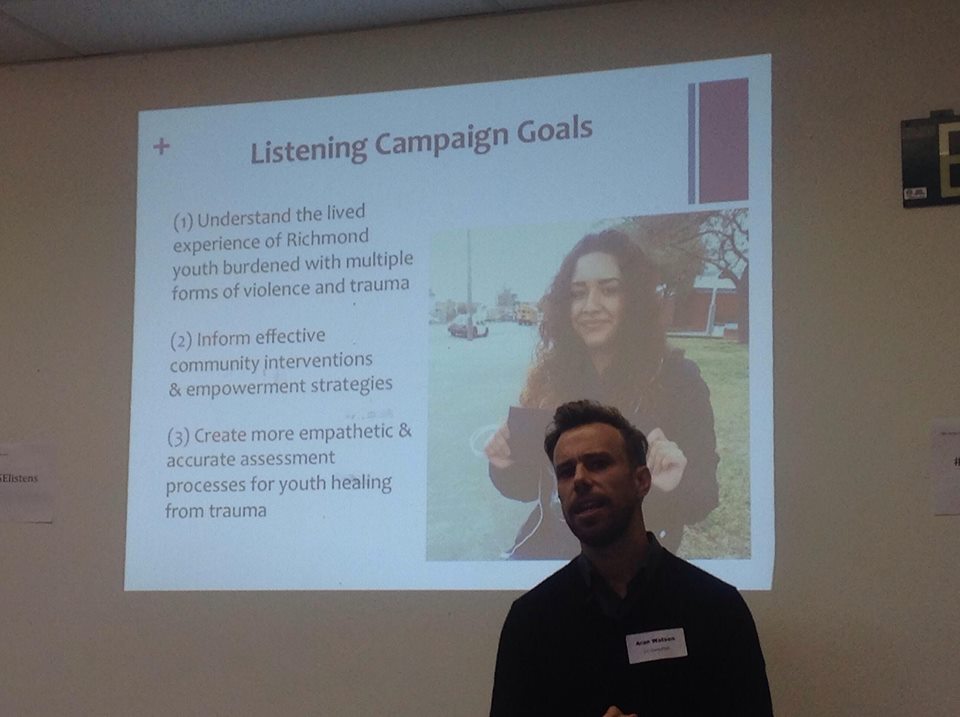
09 Dec Breaking Silence on Trauma is First Step to Healing
Commentary by Maaika Marshall, RYSE Youth Justice Coordinator
In cities and communities like Richmond, young people are often exposed to immense amounts of trauma and violence; and unfortunately, many of them are left to find their own ways to cope with the emotional and psychological aftermath. But at least in Richmond, adults who support young people are trying to connect and begin a conversation about what youth are experiencing, and what should be done to help.
Over the course of 2013, the RYSE Center surveyed nearly 450 young people in Richmond about their experiences with traumatic violence, in order to determine which strategies are best suited to support their healing. The findings from that assessment, dubbed “The Listening Campaign,” were presented last month to an audience of services providers, public agencies, community organizations, schools, and funders.
The types of trauma that young people described varied widely, although there was one theme that stood out from the rest due to its frequency: exposure to gun and gang violence. Racism and bullying were also common experiences. Likewise, a number of youth reported being victim to “silent” forms of violence – things that happen away from the public eye — such as sexual and domestic violence.
Disturbingly, the interviews also revealed that by and large, young people who experience violence are choosing to simply keep quiet. Many youth described feeling shame about the things they were seeing and experiencing, and described a general lack of trust toward the adults in their lives, and a fear of being judged, as the primary reasons for their decision to remain silent.
As a result, there is a correlation between experiencing traumatic violence and unhealthy coping behaviors. Use and abuse of drugs and alcohol were the most commonly identified coping strategies – some youth reported that using allowed them to “forget” their problems for a while. “Running away,” both physically and metaphorically, was heard from the youth. The most damaging behaviors, such as drug abuse, usually accompanied the worst types of violence. Only a small percentage of young people surveyed (1 to 2 percent) said they responded to their traumatic experience by seeking counseling.
The Listening Campaign lays the foundation for youth service providers and others who work in service or on behalf of young people to begin to make headway on “breaking the silence” of violence-induced trauma in children. Many youth who participated in the campaign described needing “someone they can trust, someone to listen to them.” In turn, the adults expressed a commitment to continue listening and create programs, policies and practices that will ensure young people in the community feel safe to share their experiences, and loved. It is important for all community members to remember that all it can take to change a young person’s life is for one person to stop and LISTEN!
For more information about the Listening Campaign, you can contact Kanwarpal Dhaliwal, RYSE Community Health Director at Kanwarpal@rysecenter.org






No Comments